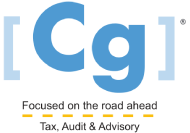
In 2024, the Association of Certified Fraud Examiners (ACFE) reported that every year, companies experience some form of business fraud, leading to an estimated $5 trillion in losses globally. That’s a staggering amount, and unfortunately, it’s a reality many companies face.
Whether you’re running a startup or managing a large enterprise, understanding the common types of business fraud can help you tighten your security and ultimately prevent fraud in your business.
Let’s explore some of the most prevalent types of fraud you should be aware of to help you stay vigilant and protect your business. For more personalized support in preventing business fraud, reach out to Cg for specialized assistance.
Asset Misappropriation
First up is assets misappropriation. Fraud of this nature occurs when employees or management steals, embezzles, or misuses company assets. Asset misappropriation is so common that the Association of Certified Fraud Examiners (ACFE) reported that it accounted for nearly 89% of fraud cases, resulting in an average loss of $120,000 in 2024.
Financial Statement Fraud
Next, we have financial statement fraud. This is where companies manipulate their financial statements to appear more profitable or financially stable than they are. It can involve overstating revenues, understating expenses, or both. This type of fraud not only misleads investors, but also affects stock prices and can lead to severe legal consequences.
Payroll Fraud
Payroll fraud is another major concern which can manifest in schemes such as inflating hours worked, falsifying overtime, or creating ghost employees. It’s estimated that payroll fraud can cost companies thousands to millions of dollars annually.
Procurement Fraud
Procurement fraud happens during the purchasing process. It could involve kickbacks, collusion with suppliers, or fraudulent invoicing, undermining fair competition and can inflate costs for the company.
Cyber Fraud
Cyber fraud is on the rise, particularly as businesses increasingly rely on digital platforms. From phishing attacks to ransomware, the threats are varied and growing. In fact, cybercrime is projected to cost businesses over $10 trillion by 2025
Insurance Fraud
Insurance fraud involves making false claims or inflating damage to gain undue compensation. It can range from staged accidents to exaggerated repair costs. It’s a costly scheme that affects both companies and insurance providers.
Identity Theft
Identity theft is another area of concern, especially with the increase in data breaches. Criminals steal personal and financial information to commit fraud. This process not only jeopardizes personal security, but also harms a company’s reputation.
Intellectual Property Theft
Intellectual property theft refers to the unauthorized use or theft of proprietary information or trade secrets. Such uses are often devastating for businesses that rely on innovation and proprietary technology.
Tax Fraud
Tax fraud includes falsifying information on tax returns to reduce tax liabilities. Of course, this type of fraud leads to severe penalties and legal trouble for companies and individuals alike.
Misuse of Company Assets
Misuse of company assets happens when employees or management use company resources for personal gain. Examples include using company vehicles for personal trips or misusing business funds.
Ponzi and Pyramid Schemes
Lastly, Ponzi and pyramid schemes involve fraudulent investment operations where returns are paid using new investors’ money rather than profit earned. In due time, schemes like this eventually collapse, leaving many investors with significant losses.
Regular audits and quality internal controls are essential to safeguard your business from these types of fraud. Learn more about protecting your business finances, from our business accounting page or contact us directly if you need personalized assistance. Your business’s integrity is worth the investment.

